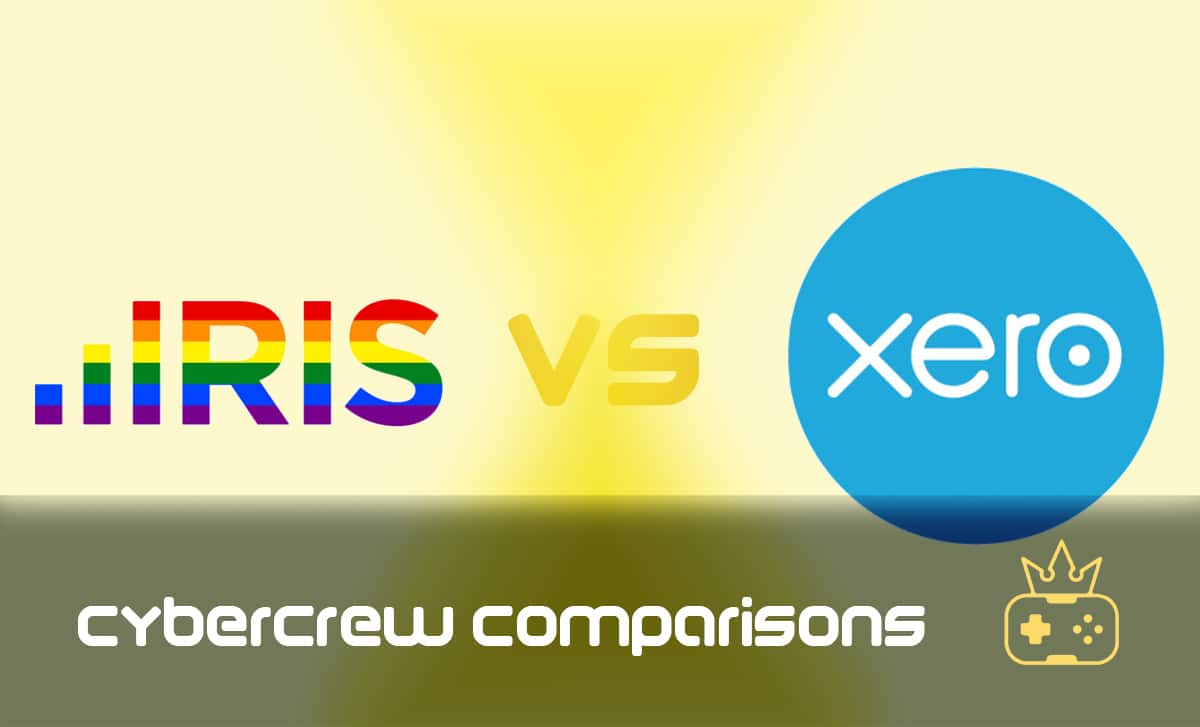What Is Cloud Hosting?
Last Updated: February 9, 2024
If you are like most business owners, you are most likely always looking for ways to run your business more efficiently and streamline your workflow. That’s why so many businesses are turning to cloud hosting these days.
Cloud hosting allows businesses to access their data and applications from anywhere in the world, at any time. In this guide, we will cover everything you need to know about cloud hosting, from basics such as how cloud hosting works up to the different types of cloud hosting and cloud-based business models.
We’ll also provide tips on how to choose a cloud hosting provider that’s right for your business. So, if you are considering transitioning to the cloud and are eager to learn all there is to know about cloud hosting, keep on reading.
What Is Cloud Hosting?
Cloud hosting is only one of the many types of web hosting. But, to better understand what cloud hosting is and how it works, you first need to familiarise yourself with the concept of web hosting.
In a nutshell, web hosting is a type of service that allows individuals and businesses to create a website and make it accessible on the internet. With traditional web hosting, a website is hosted on a single physical server, which can be private or shared with other websites.
In contrast, cloud hosting is a type of web hosting that stores all the data and files of your website on a global network of virtual servers rather than a single physical server.
Unlike traditional web hosting, cloud hosting doesn’t limit the amount of storage and bandwidth that businesses can use. Instead, it provides unlimited resources for expansion and scaling, so clients don’t have to worry about exceeding their monthly storage allowances.
How Does Cloud Hosting Work?
Cloud hosting works by splitting a single physical server into multiple physical and virtual cloud servers. These cloud servers subsequently connect to form a single network that hosts a website or application.
In other words, cloud hosting provides clients with a virtual space across a cluster of multiple servers that are often spread across a wide geographical area. That gives businesses the freedom to work from anywhere they want, and it allows them to scale their operations up or down as needed.
Who Is Cloud Hosting Best For?
Generally speaking, cloud web hosting is a suitable solution for any website that needs plenty of resources to handle huge traffic spikes and accommodate a large number of files and data. Here is a more detailed list of the types of businesses that will benefit the most from cloud hosting.
- eCommerce stores, media and entertainment companies, social network sites, streaming service providers or any other website that needs on-demand resources to provide high-performance and accessibility at all times
- Fast-growing websites that have outgrown or are expected to outgrow their existing web hosting solutions
- Websites that experience periodic spikes in traffic, as the extra resources can be easily scaled up to meet the increased demand
- Medium to large-sized businesses that are growing rapidly
- Businesses that have a global presence or need to be able to access their data and applications from multiple locations.
- Businesses that offer services whose disruption or failure would cause an entire operation to come to a halt, such as banking or other financial institutions.
To sum up, if you’re looking for a web hosting solution that is reliable, scalable, and offers the flexibility to work from anywhere, then cloud hosting can be a suitable hosting solution for you.
Cloud Hosting Models
There are three different cloud-based business models, each satisfying a unique set of business requirements. They are Infrastructure as a Service (IaaS), Platform as a Service (PaaS), and Software as a Service (SaaS). Here we will take a look at each one of them separately.
Infrastructure as a Service (IaaS)
Infrastructure as a Service entails the provision of virtual infrastructure over the cloud. In this cloud computing model, businesses can rent compute, storage, and network resources from a cloud hosting provider on a pay-as-you-go basis. With IaaS, businesses can use the resources they need, when they need them, without having to worry about the maintenance and operating costs of the servers. IaaS also eliminates the need to procure and install servers on-premise.
Platform as a Service (PaaS)
Platform as a Service (PaaS) is a model of cloud computing in which a third-party cloud hosting provider offers access to hardware and software tools to users over the internet. With PaaS, businesses can use the platform to develop, test, and deploy their applications without having to worry about the underlying infrastructure.
PaaS is different from IaaS because it provides businesses with a pre-configured platform that includes all the tools and services they need to develop and deploy their applications.
Software as a Service (SaaS)
SaaS is the most widely used option for businesses in the cloud market. It is a model of cloud computing in which a cloud provider delivers remote business applications to end-users over the internet. Typically, SaaS applications are accessed via a web browser and are managed by the cloud provider.
SaaS applications are usually subscription-based, meaning businesses only pay for the software when they use it. That contrasts with traditional software, which businesses have to purchase and install on their own servers.
Types of Cloud Hosting
If you are interested in switching to the cloud, you should know the different types of cloud hosting available. There are four main types of cloud hosting, each offering its unique features and advantages. These are public cloud, private cloud, hybrid cloud, and managed cloud hosting.
Public Cloud
The public cloud is the closest equivalent to shared hosting in a traditional hosting environment. In this case, the cloud is divided to be shared between multiple different organisations or “cloud tenants”.
The cloud resources, such as storage, cloud servers, and networks, are owned by a third-party cloud service provider. As a result, this type of cloud hosting is the most common and typically the least expensive.
Using this model allows businesses to take advantage of reduced costs, high reliability, easy management, and almost unlimited scalability. However, public cloud-based services are often less flexible in terms of security and configurations and give businesses no control over maintenance and management.
Popular examples of public cloud hosting providers are Amazon Web Services, Google Cloud Platform, and Microsoft Azure.
Private Cloud
A private cloud is any cloud solution that is dedicated solely to one business or organisation. With private cloud hosting, customers share no cloud infrastructure with other users or tenants. In this model, the cloud infrastructure can be managed by a third-party provider or by the organisation internally and exist on-premise or off-premise.
Additionally, private cloud hosting is costlier than public hosting. As a result, it is most often used by financial institutions, government agencies or any other organisation that requires more control over its cloud data and applications.
Hybrid Cloud
A hybrid cloud mixes the advantages of both public and private cloud environments to create a single IT infrastructure. A hybrid cloud combines at least one public cloud with at least one private cloud.
Hybrid cloud is typically the most expensive, but it offers businesses the most control over their data and applications.
This type of cloud-based hosting is an excellent option for businesses that want the flexibility and security of a private cloud while also taking advantage of the economies of scale offered by a public cloud.
Managed Cloud
As businesses migrate their workloads to the cloud, they find it increasingly harder to take care of the cloud infrastructure. That is where managed cloud hosting comes into play.
With managed cloud hosting, the web hosting provider takes care of all the hardware and software needed to run your applications. That means that businesses can focus on their core business goals rather than spending time and resources on managing their cloud infrastructure. Managed cloud hosting works best for beginners and businesses that lack a solid IT support team.
Best Cloud Hosting Providers
As more and more site owners and businesses are moving their websites to the cloud, the number of cloud hosting providers is constantly growing. There are now countless web hosts that provide cloud hosting services to clients, so finding the right one can be challenging. To help you out, we’ve gathered the best cloud hosting providers based on their flexibility and scalability and explained what each of them has to offer below.
Hostinger
Hostinger is one of the most reputable web host providers, offering a range of hosting solutions, including shared hosting, VPS hosting, and cloud hosting. Users can choose between three cloud hosting plans — Cloud Startup, Cloud Professional, and Cloud Enterprise. Each plan comes with a free domain name, SSL certificate, unlimited bandwidth, and the option to host up to 300 websites.
Hostinger’s cloud hosting plans are also quite affordable and generous. The Startup plan comes at only £7.99 a month and includes 200 GB of SSD storage, two CPU cores and 3 GB RAM. If you are looking for something more, you can opt for Cloud Professional — Hostinger’s recommended plan, priced at just £14.99 a month.
At £69.99 a month, the Cloud Enterprise Plan is a little pricier, but it includes 12 GB RAM, 300 GB SSD storage and up to six CPU cores.
DreamHost
If you are looking for flexible cloud hosting that bills on an hourly basis, DreamHost is an excellent option. This web host divides its cloud hosting services into two main areas — cloud object storage and cloud computing. The cloud computing service is called DreamCompute, comprising three plans.
Each plan has a maximum amount that you can get billed at per month, but you will only get charged for the resources that you end up using. The plans are very affordable too, ranging from as little as $4.50 (around £3) to $48 (around £36) a month. In addition, all plans come with free bandwidth and 100 GB of block storage.
Cloudways
Cloudways is a managed cloud hosting platform that offers cloud hosting services from different companies. This web host lets you select from one of the following five companies: Amazon Web Sevices, Google Cloud, Digital Ocean, Linode, and Vultr.
These companies will provide the cloud infrastructure you will use, but instead of setting up an account with them, you let Cloudways set things up for you.
Cloudways also operates on a pay-as-you-go model, which means you can upscale or downscale as you go and only pay for the features and services you need. Cloudways features remain the same with all its plans, no matter which company you decide to go with. They include a free SSL certificate, 24/7/365 support, 24/7 Real-time Monitoring, dedicated firewalls, a CDN add-on, and many more.
Hostwinds
Hostwinds is another web host that offers powerful cloud hosting solutions billed on an hourly basis. Moreover, Hostwind’s cloud hosting plans are some of the most affordable ones you will come across. For instance, its most basic plan is priced at only $0.006931 an hour, amounting to only around £3 a month.
Hostwinds offers a decent amount of resources on all of its cloud plans. They range from 1–16 CPU, 1–96 GB RAM, 30–750 GB storage, and 1–9 TB bandwidth.
Independently of the cloud server you choose, Hostwinds offers the following features with all of them: 99.9999% uptime guarantee, a free website transfer, custom ISO’s, SSDs, complete real-time backups, and more.
SiteGround
SiteGround is a managed cloud hosting provider, meaning it will fully configure and manage your cloud account for you, so you will be able to focus on other aspects of your website. This web host offers four managed cloud hosting plans — Jump Start, Business, Business Plus, and Super Power, ranging in price from £60 to £240 a month.
The Jump Start plan offers plenty of resources to get your site up and running, including 4 CPU cores, 8 GB of memory, 40 GB of SSD space, and 5 TB data transfer. The best part is the auto-scaling feature, which will automatically add more resources to your site during unexpected traffic spikes, so you won’t have to worry about downtime and traffic loss.
Benefits of Cloud Hosting
Hosting your data in the cloud comes with numerous benefits. Below we explore some of the key benefits of cloud hosting, so you can decide whether it is the right fit for your business needs.
Scalability and Flexibility
Cloud hosting is flexible because businesses can scale up or down as needed. If your business experiences a surge in traffic, you can easily scale up your resources to meet the demand. If there is a drop in traffic, you can scale down your resources to save money. This flexibility makes cloud hosting a great option for businesses that are constantly growing or changing.
Faster Speed and Performance
Cloud hosting also offers better website speed than other hosting solutions. In fact, it is one of the fastest web hosting options available. The main reason for this is that cloud hosting allows load balancing across multiple server environments.
The end result is improved page loading speeds, reduced downtime and an overall better customer experience. That makes cloud hosting a great option for businesses that need to make their website as fast and responsive as possible.
Security
Cloud hosting is more secure than other types of web hosting because your data is stored in multiple data centres. That allows for automatic data backup and fast and easy cloud disaster recovery. In addition, cloud hosting providers often have robust security measures in place to protect your data, including:
- Security audits: Cloud hosting providers regularly perform security audits to ensure that their systems are safe and secure.
- Encryption: Your data is encrypted when stored in the cloud, so it is protected from unauthorised access.
- Firewalls: Cloud hosting providers have firewalls in place to protect their systems from hackers and other threats.
- Data backups: Your data is backed up regularly, so you can rest assured that it will be safe if something were to happen to your primary data centre.
- Safety from hardware issues: With cloud hosting, you will be safe from any physical server issues, including hacking, system overload, or hardware failure
Pay-as-you-go Model
Cloud hosting can be more affordable than other hosting solutions because you only pay for the resources that you need to use. For instance, suppose one of the blog posts on your website goes viral, and you experience an unexpected traffic surge. In that case, you don’t have to upgrade your package fully but only scale your resources until traffic levels return to normal. Ultimately, you won’t have to pay for any resources that you’re not using. That makes cloud hosting a cost-effective option for businesses of all sizes.
Quick Server Setup
Cloud hosting providers typically offer a fast server setup. In most cases, you can have your server up and running within minutes. That makes cloud hosting an excellent option for businesses that need to get up and running quickly.
High Uptime
Cloud hosting also offers high uptime and site availability. In fact, cloud hosting is one of the most reliable web hosting options currently available. The explanation for that is simple. Since you will be using a system of interconnected servers, if one goes offline, another one can simply take over and keep your site up and running.
Environmentally Friendly
An often overlooked but valuable benefit of cloud hosting is that it is an environmentally friendly solution that can help you dramatically cut your carbon footprint. That is because it is more energy-efficient than traditional hosting.
With traditional hosting, businesses have to purchase and maintain hardware and software, which uses a lot of energy. Cloud hosting providers store your data in multiple data centres, so you don’t have to purchase and maintain hardware and software.
Minor Disadvantages of Cloud Hosting
Like any other type of web hosting, cloud hosting also comes with a few disadvantages.
Costs Can Add Up
The key disadvantage of cloud hosting is that it can get expensive. Cloud hosting providers typically charge by the hour, so you can end up paying a lot of money if you use a lot of resources. In addition, you may need to purchase additional resources to meet your needs, which can lead to costs adding up over time.
Complex
Another disadvantage of cloud hosting is that it can be challenging to set up and manage. So, you may need to hire a team of experts to help you set up and manage your cloud hosting solution.
Possible Downtime
It is extremely rare for the cloud to go down, but the possibility still exists. Cloud hosting is internet-dependent, so if there is an issue with your internet connection, your site may go down.
Possible Security Breaches
Storing your most important data on multiple virtual cloud servers rather than a single physical one can sometimes open you up to the risk of your data being stolen or leaked. Still, If you are following all of the necessary security guidelines, you can significantly reduce that risk. For maximum security while using cloud hosting, opt for a private cloud instead of a public one,
Factors to Consider When Choosing a Cloud Hosting Provider
When choosing a cloud hosting provider, there are several factors to consider. The most important factors include:
- Price: Cloud hosting can be expensive, so you need to find a provider that offers a plan that fits your budget.
- Uptime: You should choose a provider that has a high uptime percentage and that offers compensation for any downtime you experience.
- Security: Your data should be encrypted and protected with firewalls and other security measures.
- Support: You should choose a provider that offers 24/7 support so you can get help when you need it.
- Help to migrate: You should choose a provider that offers all the necessary help and support when migrating to the cloud so you don’t end up losing any critical data.
- Bandwidth: You need to ensure that the provider offers enough bandwidth to meet your needs.
- Storage space: Make sure the provider offers enough storage space for your files and data.
- Compatibility: The provider should offer compatibility with the software and applications you use.
- Scalability: The provider should offer a scalable solution to grow your business.
Wrap Up
So, what is cloud hosting? Cloud hosting can be best described as an on-demand service that gives you access to a pool of resources. You only pay for what you use, and the service scales with your needs. That makes it perfect for businesses that are constantly growing and are in need of a flexible hosting solution.
The main benefits of cloud hosting are its scalability, flexibility, and affordability. However, there are also some drawbacks to consider before making the switch. Before deciding if cloud hosting is right for your business, make sure to weigh up all the pros and cons. Have you made the switch to cloud hosting yet? If not, why not? Let us know in the comments below!
FAQ
Cloud hosting is a type of web hosting that allows businesses to access a pool of resources on demand. That makes it perfect for businesses that are constantly growing and need a flexible hosting solution. The main benefits of cloud hosting are its scalability, flexibility, and affordability. In addition, cloud hosting can be more reliable than other types of web hosting.
The main disadvantages of cloud-based hosting are that it can be expensive, complex, and less reliable than other types of web hosting. In addition, cloud-based hosting can be vulnerable to security breaches.
Cloud hosting is generally more expensive than VPS but offers more flexibility and scalability. On the other hand, VPS is less expensive but doesn’t offer the same flexibility and scalability as cloud hosting.
Not all businesses need cloud computing. For example, if you own a small website with low traffic, you may not need to switch to cloud hosting. Cloud computing is also not a good option for businesses that are not growing or businesses that do not need a flexible hosting solution. In addition, cloud computing is not a good option for businesses that are unwilling to pay more for increased flexibility and scalability.



![How to Sell on Depop in the UK [2024 Guide]](https://cybercrew.uk/wp-content/uploads/2023/06/Selling-on-Depop-UK.png)


![Free Appointment Scheduling Software — UK Top Picks [2024]](https://cybercrew.uk/wp-content/uploads/2022/07/Free-Appointment-Scheduling-Software.png)



